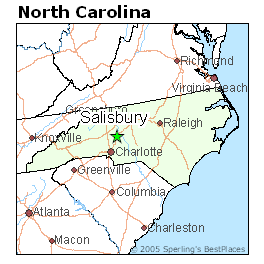 Videotron last week unveiled 120/20Mbps broadband service loaded down with tricks and traps that will cost many Canadians far more than the $149.95CDN monthly asking price.
Videotron last week unveiled 120/20Mbps broadband service loaded down with tricks and traps that will cost many Canadians far more than the $149.95CDN monthly asking price.
Québec’s largest cable operator introduced Ultimate Speed Internet 120 for “users who want to experience the fastest Internet access in Québec.” But with a download limit of just 170GB per month combined with an upload limit of a paltry 30GB per month, what many Internet enthusiasts are also likely to experience is a huge bill.
Videotron is rolling out a high-speed Internet access service that will give residents of the Québec City area the fastest speeds in Canada. As of tomorrow, Ultimate Speed Internet 120 will support download speeds of 120 mbps and upload speeds of 20 mbps, a first for Québec City.
“Ultimate Speed Internet 120 pushes back the frontier for intensive Internet users,” said Robert Dépatie, President & CEO of Videotron. “Today, we are launching the high-speed Internet service of the future. With the pace at which users’ needs are changing, we are not so far from the day when 120 mbps will be a must-have convenience.”
Astonishing capacity
As of tomorrow, Ultimate Speed Internet 120 will be available in nearly 80% of the greater Québec City area, or to nearly 310,000 households and businesses. The service will be accessible throughout the Québec City area by December 31, 2010 and will then be gradually rolled out to other parts of Videotron’s service area.
Astonishing Overcharging

Yanette is going to the bank to withdraw more funds to pay her exorbitant Videotron broadband bill.
Unlike many other Internet Overcharging plans from Canada’s usage cap-happy providers, Videotron’s highest-speed plans don’t limit the amount of overlimit fees customers will be exposed to once their allowance is exhausted. In little more than three hours of usage at near-maximum speeds, overlimit fees of $1.50CDN per gigabyte kick in until your usage allows resets the following month. That’s more than $50 an hour in overlimit fees if running the service near top speeds.
Videotron’s press release says those limits are “well in excess of the current needs of heavy bandwidth users.”
Even worse, Videotron targets its highest speed broadband plan for “traffic management,” which throttles upload speeds dramatically for customers who “have uploaded a statistically significant amount of data,” which is never defined:
Every 15 minutes, a system checks the usage rate for each upload channel (each upload channel typically serves a few dozen modems). If the usage rate has reached a threshold beyond which congestion is imminent, the system identifies the USI 120 modems on that channel that have uploaded a statistically significant amount of data. Uploading from these modems is then momentarily given lower priority. Depending on the severity and duration of the congestion, uploading speed may be slowed for these modems. […]The above measures are applicable at all times.
That assures customers of a less-than-blazing-fast broadband experience they have paid top dollar to receive. In effect, this means Videotron’s customers who pay three times the regular price for a concierge-like-broadband-experience are pushed to the back of the line if they actually use it.
A Videotron customer on Broadband Reports wrote, “It’s like driving a jet-car in an alley. You can probably start the engine, but don’t open the gas too much!”
Another customer from Montreal noted it takes no time at all for customers to blow through those kinds of limits:
This is merely a political play to be able to advertise as “the fastest ISP in Quebec/Canada”. Obviously such ridiculous caps are nowhere near the needs of someone who would pay $150 for that kind of speed, but they don’t mind saying things like “well in excess of the current needs of heavy bandwidth users” because 90% of the population, even the journalists themselves, have no idea what gigabytes are in the first place.
Considering most recent games released on Steam/D2D can be over 20GB, one HD episode is 1.3GB to stream each, 170GB is very little.
The cable operator will also throw some small bones to their existing customers effective Oct. 13:
- Customers with Videotron’s standard High Speed Internet service ($42.95CDN – 7.5Mbps/720kbps) will get a 10 gigabyte usage allowance increase — to 40GB of usage per month. The overlimit fee remains a stunning $4.50 per gigabyte, up to a maximum of $50 per month;
- Upstream speeds on Ultimate Speed Internet 50 service ($81.95CDN – 50/1Mbps) will be doubled from 1Mbps to 2Mbps with no price increase. Considering that plan limits consumption to 125GB per month, the faster speeds mean unlimited overlimit fees of $1.50 per month will add up even faster.
Delivering high speed broadband at premium prices with usage limits and speed throttles is a business plan disaster. Customers willing to pay the highest prices for fast broadband don’t seek those Cadillac plans to browse web pages. They want to leverage the fastest possible speeds to make high bandwidth applications work better and faster. In a business environment, those faster speeds save time, which saves money. But broadband providers who engage in Internet Overcharging schemes that limit use and charge confiscatory overlimit fees destroy demand for their own products, because few customers are willing to pay the premium prices these plans charge -and- expose themselves to overlimit fees if they happen to exceed an arbitrary usage limit.
Further south in the United States, Americans are still rejecting overpriced DOCSIS 3-premium speed broadband plans, and they come with no usage caps. Time Warner Cable’s DOCSIS 3 expansion delivers a premium price on the resulting faster speed tiers, and the company managed to sign up fewer than 2,000 customers as of January.
Now imagine a plan that commanded a premium price -and- slapped a limit on usage.
As they say in Québec: c’est ridicule!


 Subscribe
Subscribe






